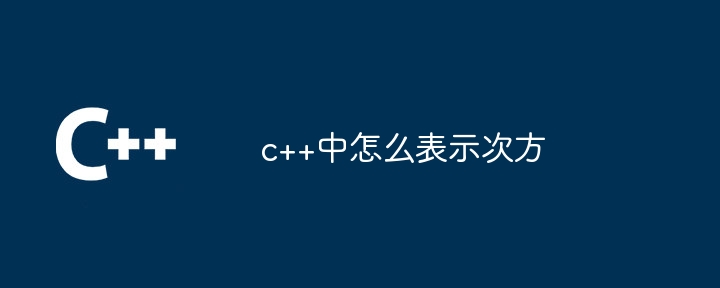Home >Backend Development >C++ >How to express power in c++
How to express power in c++
- 下次还敢Original
- 2024-04-26 15:27:151018browse
The four methods of expressing power in C are: using the pow() function: double x = pow(base, exponent); using the powl() function: long double x = powl(base, exponent); Use std::pow() function: double x = std::pow(base, exponent); Manual calculation: double x = base base base;

Several ways to express powers in C
1. Use the pow() function
<code class="cpp">#include <cmath> double x = pow(base, exponent);</code>
This function receives two parameters, base is The number to be raised to the power, exponent is the exponent. The return result is base raised to the exponent power.
2. Use powl() function
<code class="cpp">#include <cmath> long double x = powl(base, exponent);</code>
This function is similar to the pow() function, but the return type is long double. It is suitable for calculating powers with higher precision.
3. Use the std::pow() function
<code class="cpp">#include <iostream>
using namespace std;
int main() {
double x = std::pow(base, exponent);
return 0;
}</code>
This function is the namespace version of the pow() function and does not need to include the
4. Manual calculation
For smaller exponents, you can manually calculate the power. For example:
<code class="cpp">double x = base * base * base; // 计算 base 的三次方</code>
Tip:
- Using the pow() function is the easiest way, but it requires the
header file. - If you need higher precision, you can use the powl() function.
- If you use the std::pow() function, you need to include the namespace std in your program.
- Manual calculations are reasonable for smaller exponents but become complicated for larger exponents.
The above is the detailed content of How to express power in c++. For more information, please follow other related articles on the PHP Chinese website!

